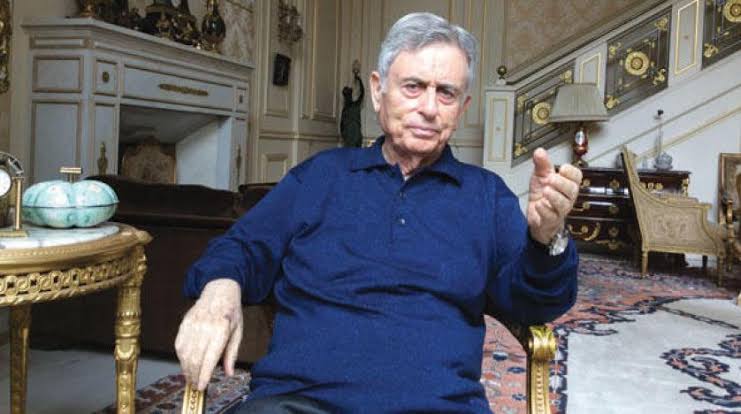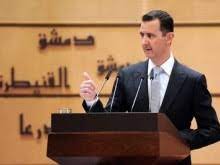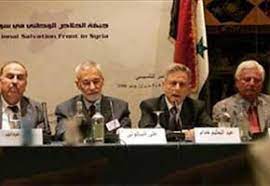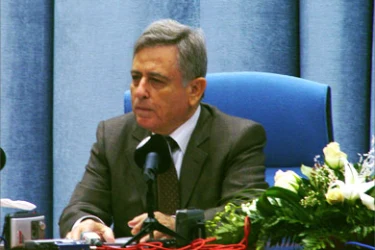It is clear that one of the main goals of those advocating for this conference is to present a settlement project with the regime rather than to develop a project to support the ongoing revolution in the country, where everyone agrees on overthrowing the regime and building a free democratic state where citizens are equal in rights and duties. The objectives of the settlement, as outlined in the statement, can be summarized as follows:
- The conference calls for the immediate resignation of President Bashar al-Assad from all his positions, handing over power, according to constitutional procedures, to his deputy temporarily until the election of a transitional council to draft a new constitution for the country. Following this, parliamentary and presidential elections are to be held within a year from the president’s resignation.
This implies:
a. Recognition of the legitimacy of the current regime for a one-year period with its constitutional and institutional structure intact. The officials appointed by the regime will continue their roles during this period. Consequently, any elections will likely result in a significant majority of supporters of the current regime.
b. The regime is not just the president but includes the constitution and constitutional institutions. The current constitution grants the head of state extensive decision-making powers. Therefore, maintaining the current constitution with any new president would allow that president to consolidate power, contributing to the crisis that began with the adoption of the current constitution.
- The statement conspicuously avoids addressing Article 8 of the constitution, which has been a recurring theme in every political speech. Is this omission intended to align with the Assistant Secretary-General of the Ba’ath Party’s statement refusing to amend Article 8 of the constitution? Does the lack of mention aim to facilitate a potential dialogue with the regime?
- The statement discusses the heinous crimes committed by the regime in general terms without explicitly connecting these crimes to those who ordered, planned, and supervised them. Both the murders and the invasion of cities and villages, as well as the desecration of the bodies of martyrs (e.g., the case of the martyr Hamza Al-Khatib), are not directly attributed to specific individuals. Additionally, the statement ignores any reference to detainees and their torture. Could the disregard for prosecuting those responsible for these crimes be part of the settlement project?
- The statement includes two paragraphs—one rejecting foreign intervention and the other urging the international community to assume legal and moral responsibilities to stop human rights violations. The distinction between the contents of these two paragraphs is not clearly defined. Do the conference participants consider the current Syrian regime a national one? Is a regime using the military and security forces to invade cities and villages with tanks and various weapons still considered a national regime? Are cannons and tanks owned by the army still considered national, even though they destroy the country?
Do the conference participants not recognize the extent of Iran’s role in the regime’s bloody operations? Is Iranian participation seen as national participation? Why was this aspect ignored?
Hasn’t the regime sought assistance from Israel, as indicated by Rami Makhlouf’s statements to The New York Times, where he called on the United States to stop pressuring his president and then directed his discourse to Israel, telling them that Israel’s security is linked to Syria’s security? Does such a position constitute a national stance?
The regime, with its forces, is slaughtering citizens as they demonstrate peacefully. Should the regime be allowed to continue its crimes, or should every means be explored to protect the Syrian people from murder, repression, and persecution? Do we not bear the serious responsibility of urging the international community to take decisive action to stop these massacres, dismantle this regime, and empower the people to achieve their aspirations? Which is more profoundly patriotic: protecting the Syrian people and saving them, or raising empty slogans without realizing the potential consequences, such as increased killing and destruction or reactions leading to tearing apart national unity?
- The statement does not touch on two interconnected issues: the first being the amnesty law issued by the head of the regime, and the second being the dialogue initiated by the regime. Is this omission because the contents of the statement serve as a working paper for dialogue?
- All statements from the opposition abroad have emphasized that their task is to support the revolution rather than provide solutions, to support rather than disrupt. Does the content of the statement represent a departure from this commitment and an attempt to obstruct the role of these resilient heroes who, with bare chests, face bullets and bombs from the regime?
Finally, may God protect Syria, preserve its people, safeguard its revolution, and have mercy on its martyrs.
Abdul Halim Khaddam June 3, 2011




